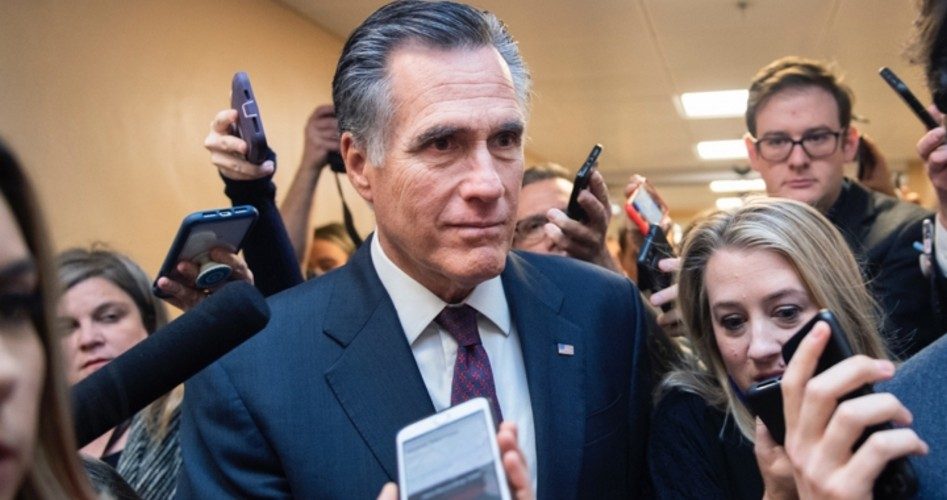
When Utah Republican Senator Mitt Romney decided to vote to convict the president for the abuse of power he knew he’d get blowback.
“I know there’s going to be a lot of blowback from leaders in my party here [in Washington],” he said. “I presume I’ll receive the same reaction from leaders in my party in Utah. Of course, the animosity that might be leveled from people in the street is going to be real as well.”
What he likely didn’t know was just how strong and pervasive that blowback would be. Donald Trump, Jr. led off with his tweet: “Mitt Romney is forever bitter that he will never be POTUS. He was too weak to beat the Democrats then so he’s joining them now.”
Fellow Utah Senator Mike Lee said he was “very disappointed” over Romney’s decision to be the only Republican to vote for conviction, adding that “I strongly disagree with his decision on this. In the heat of this particular decision it’s hard for me to see anything but that disagreement.”
Representative Chris Stewart (R-Utah), a member of the House Intelligence Committee that heard all of the impeachment witnesses, said he has “great respect” for Romney but that on this issue he was wrong. “I sat through hundreds of hours of hearings, listened to dozens of witnesses, and have reviewed thousands of pages of documents,” he said. “There’s no way this president deserves a vote of conviction. I think Senator Romney has reached the wrong conclusion.”
Senator Kelly Loeffler (R-Ga.) agreed with Stewart: “After two weeks it’s clear that Democrats have no case for impeachment. Sadly, my colleague Senator Romney wants to appease the left by calling witnesses who will slander the president during their 15 minutes of fame.”
Laura Ingraham minced no words, calling Romney “the ultimate, selfish, preening, self-centered politician,” adding:
If he were up for reelection this year, the people of Utah would have their own payback against him because they were defrauded by Romney. For when he had to choose, he chose Schumer and Harris over common sense and conservatism.
If you’re one of Romney’s constituents in Utah, you’re out of luck.
Utahans are in luck. The Recall Romney Now movement, which started last summer, has been given a shot in the arm. Patrick Howley, an investigative reporter for National File, wrote that the movement is laboring to expose “the dark truth about Mitt Romney”, to wit:
Romney’s foreign policy adviser on his 2012 campaign, Joseph Cofer Black, served on the board of Burisma Holdings alongside Hunter Biden, which is important context when analyzing Romney’s betrayal of President Trump.
Romney also has some baggage that renders him toxic to conservatives, including the fact that he accepted money from Jeffrey Epstein companion Ghislaine Maxwell’s father Robert Maxwell in the very early days of Romney’s firm Bain Capital.
At Bain, Romney invested in the fetus disposal company and longtime Planned Parenthood partner Stericycle.
Romney also brought socialized health care to Massachusetts during his one term as governor, inspiring the federal Obamacare law.
The group is promoting the Voter Accountability Act, which will give Utahans the power to recall Romney: “The Utah people will no longer have to ‘wait out’ the term of a U.S. Senator.” (Romney isn’t up for reelection until 2024).
The group expressed its position on Romney in a public letter that said, in part: “It is evident that you have a personal vendetta with President Trump … you have adopted a stance of rooting for President Trump to fail. We the people of Utah did not elect you to be another John McCain nor become the replacement for former Senator Jeff Flake of Arizona.”
And these are just a few examples of the blowback generated in the hours following Romney’s betrayal. By the time he gets back to Utah to try to explain why he bolted and joined the Democrats in voting for Trump’s conviction, it’s likely he will find more than he bargained for.
Photo of Sen. Mitt Romney: AP Images
An Ivy League graduate and former investment advisor, Bob is a regular contributor to The New American primarily on economics and politics. He can be reached at [email protected].

